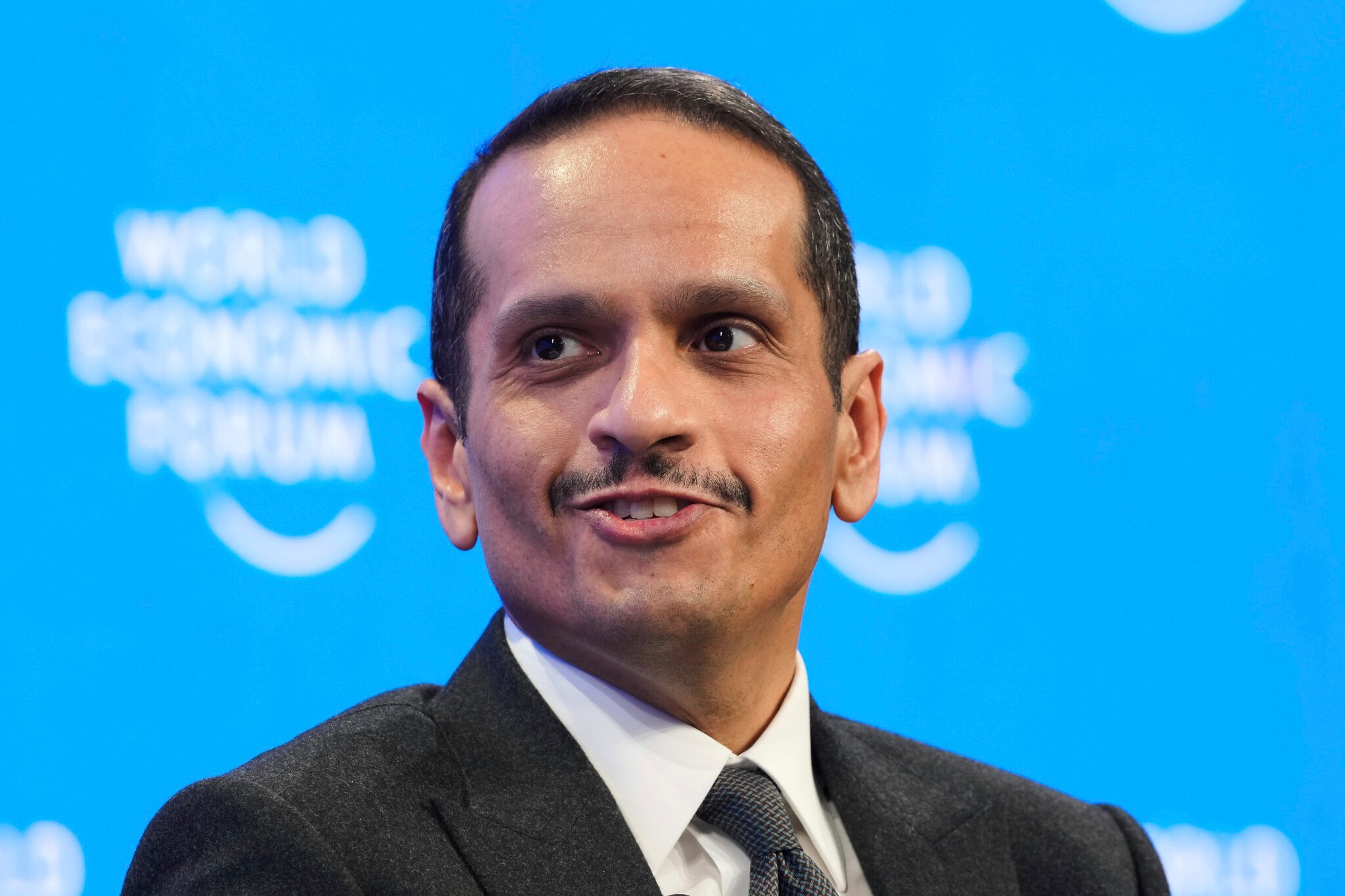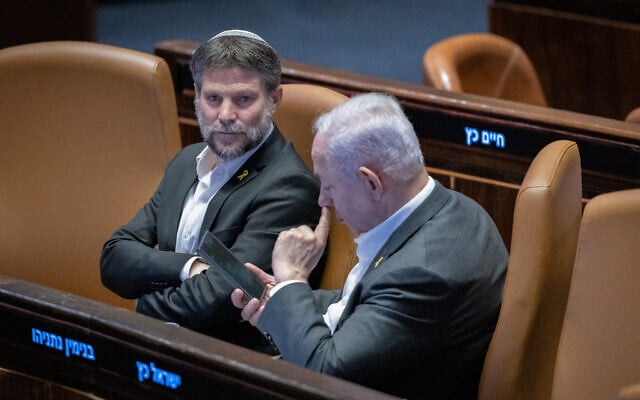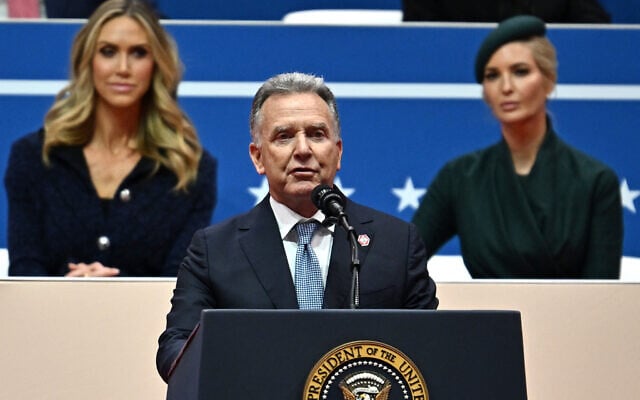



Top officials from the US, Israel, and Egypt were reportedly already moving on the second stage of the Gaza hostage-ceasefire deal on Wednesday, some two weeks ahead of the scheduled date for the discussions to begin.
The reports came as Qatari Prime Minister Mohammed bin Abdulrahman Al Thani said he was ready to start mediating talks on the second stage as soon as possible, and as US President Donald Trump’s Mideast envoy, Steve Witkoff said he would travel to the region to be part of what he described as an inspection team deployed in and along the Gaza Strip to ensure ceasefire compliance.
The Qatari prime minister told the Walla outlet that he plans to speak to Mossad head David Barnea this week to begin discussing negotiations on the second phase of the agreement: “We are pushing for this.”
Al Thani spoke in Davos, where he is attending the annual World Economic Forum.
Witkoff will also hold talks on the second phase when he arrives, Walla reported.
An unnamed senior Israeli official told the Walla site that Israel has “no problem” beginning the talks before day 16, but cautioned that the process could be lengthy.
“Negotiations on the first phase lasted months, and reaching an agreement on the second phase may also take a long time,” the unnamed official said. Previously, Israeli officials have said the discussions were set to begin on day 16 of the first phase of the deal.
Another Israeli official told the site that Shin Bet chief Ronen Bar and Barnea held talks on the deal during their Cairo meetings with Egyptian intelligence officials this week, but noted that Prime Minister Benjamin Netanyahu had not yet had a meeting on the second phase of the deal. Nonetheless, he stressed that Israel wants to see the ceasefire plan through.
Channel 12 reported that while in Egypt, Bar and Barnea specifically discussed details of the second phase of the deal, including how many Palestinian security prisoners would be released for each Israeli hostage set free.
Qatar, Egypt, and the United States brokered the multi-phase deal between Israel and Hamas terrorists, and the two Arab countries have set up a communications hub in Cairo to head off new clashes between the foes.
Despite the reported developments, the fate of the latter stages of the ceasefire deal is still in question. Far-right Finance Minister Bezalel Smotrich has said Netanyahu promised him that fighting will be renewed after the first phase ends. Smotrich has vowed to not allow a deal that stops the war before Hamas is destroyed.
Even Trump, who has touted his role in securing the deal, said Monday he was “not confident” that the Gaza ceasefire and hostage release agreement would be upheld through all three phases.
Trump said Tuesday he is considering a visit to the Middle East, but not immediately.
Arab diplomats speaking to The Times of Israel have credited Trump and Witkoff, who held talks in Qatar and Israel in the final week of the Gaza negotiations, with helping bring the deal across the finish line, particularly by pressuring Netanyahu.
In an interview with Fox News on Wednesday, Witkoff said that implementation of the deal would be more difficult than getting the parties to agree to it.
“I’m actually going to be going over to Israel. I’m going to be part of an inspection team at the Netzarim Corridor, and also at the Philadelphi Corridor,” Witkoff said.
Netzarim is an east-west strip that Israel cleared during the war. It prevents Palestinians’ free movement between northern and southern Gaza. Philadelphi is a narrow border strip between Gaza and Egypt.
“That’s where you have outside overseers, sort of making sure that people are safe and people who are entering are not armed and no one has bad motivations,” Witkoff added.
His comments appeared to be the first public confirmation of US involvement on the ground in Gaza to help keep the deal on track. Witkoff did not say who else might be part of the inspection teams.
Witkoff was asked which countries in the region might join the Abraham Accords, a series of agreements struck during Trump’s first term that saw Israel establish ties with Arab countries including the United Arab Emirates, Bahrain, and Morocco. He said he believed all countries in the region could get “on board” to normalize ties with Israel.
Asked to identify specific countries, he singled out Qatar, saying the Gulf country was a critical player in reaching the Gaza ceasefire deal.
“I think you could get everybody on board in that region. I really do. I think there’s a new sense of leadership over there,” Witkoff said.
Asked to name a specific country, Witkoff said: “I mean, Qatar… Qatar was enormously helpful in this. Qatar’s (Prime Minister) Sheikh Mohammed, (his) communication skills with Hamas were indispensable here.”
With the start of the first stage of the ceasefire deal conversation around the “day after” in Gaza has intensified, with many international figures calling for the Palestinian Authority to return to controlling the Strip, as well as for increased efforts toward reaching a comprehensive Israeli-Palestinian two-state solution.
According to a report in the Saudi-owned, UK-based Asharq Al-Awsat on Wednesday, Israel has agreed to allow the PA to take control of the Rafah Crossing between Gaza and Egypt in future stages of the deal.
The Prime Minister’s Office partially denied the report, accusing the PA of attempting to “create a false picture to the effect that it controls the crossing.”
The Israeli official who spoke to Walla said that Israel will continue to demand that Hamas not be permitted to govern Gaza after the war. According to Walla, Egypt has been working with Palestinian factions in recent weeks to establish what it calls a “civilian committee” to potentially run Gaza alongside the international community and representatives of the Palestinian Authority.
Hamas released three Israeli hostages on Sunday as the deal came into effect, bringing a halt to the war that began October 7, 2023, when Hamas-led terrorists invaded southern Israel, killing over 1,200 people and kidnapping 251 hostages.
The first stage of the framework, first presented by then-US president Joe Biden in a May 31, 2024, speech, provides for a temporary ceasefire, the release of 33 Israeli hostages, and the freeing of nearly 2,000 Palestinian security prisoners and detainees.
Ninety-one of the 251 hostages abducted by Hamas on October 7 remain in Gaza, including the bodies of at least 34 confirmed dead by the IDF.





